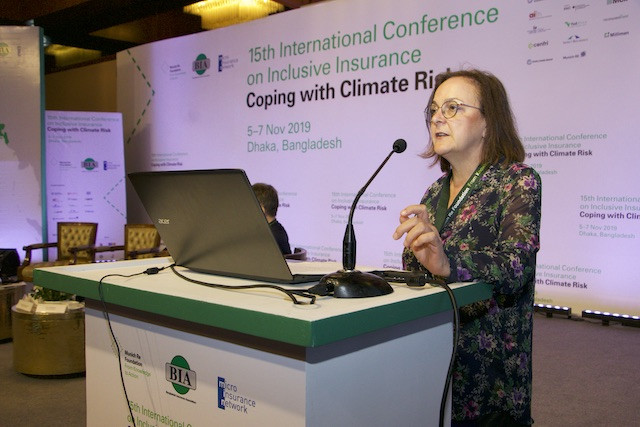As Pulvermacher explains, this report “is the only research of its kind” looking not only into how many people are covered, but also delves into types of coverage and highlights protection gaps. The report’s findings are that the number of customers in emerging markets served by the safety net of insurance is “alarmingly low” and makes the case for governments and insurance providers to step up efforts in this realm, otherwise they risk exacerbating existing gaps, especially when compounded with the impacts of the climate and health crisis.
The emergence of covid-19 amongst low-income households in emerging markets has been “absolutely terrible”, adds Pulvermacher, who cites the fact that in some of these countries workers are employed informally and they lack income protection. “Insurers are not known for their customer centricity,” Pulvermacher notes, and it can be confusing for potential customers to see the immediate benefit of being covered.
Some of the gaps to meet the challenges include regulatory constraints, and the political will to provide protection is “not [happening] as quickly as we’d like to see,” Pulvermacher says. Moreover, although there is often a will by global players to meet the demand in these markets, “few really grasp” how they can do so.
Case study: Senegal
One of the successful case studies Pulvermacher describes, also outlined in the report, is the work of Axa partnering with the National Agriculture Insurance Company of Senegal to develop index insurance for small-scale farmers against drought damage. Premiums are subsidised 50%, making them more obtainable for farmers.
Claims have been high due to recent droughts in the region, and Pulvermacher said not only were the farmers paid quickly post-claim, but the system turned out to be “a godsend” given that payouts happened “just as lockdown was happening”.
Unified response
From 2-6 November, experts working with NGOs, development agencies and insurance players, among others, are expected to meet online to address these concerns and seek ways to encourage governments and insurers to step up their efforts during the International Conference on Inclusive Insurance.
If there’s any silver lining to covid, it may be in the fact that in the past the conference saw around 500 people attending, but since it is held virtually this year it has been more inclusive, Pulvermacher adds, thanks in part to less cost/resource constraints so more grassroot members can attend. So far, local, national and regional actors are joining from 116 different countries.
While Pulvermacher is pleased that Luxembourg has officially committed 1% of its GNI to development assistance, she notes that not all government central banks can have “depth of coverage”, given the economic hit. Nevertheless, she remains positive on a “unified, collaborative response” to support these economies. “Over the last one-and-a-half years, there has been a change in momentum,” Pulvermacher states. And, despite more strain on the global economy, she says that momentum “is getting stronger… [we see we are] in it together.”
